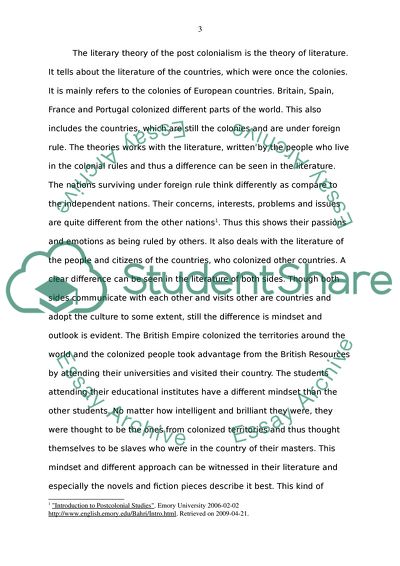Cite this document
(What Does Postcolonial Theory Lack in Relation to Historical Research Paper, n.d.)
What Does Postcolonial Theory Lack in Relation to Historical Research Paper. Retrieved from https://studentshare.org/anthropology/1723088-what-does-postcolonial-theory-lack-in-relation-to-historical-anthropology-according-to-thomas
What Does Postcolonial Theory Lack in Relation to Historical Research Paper. Retrieved from https://studentshare.org/anthropology/1723088-what-does-postcolonial-theory-lack-in-relation-to-historical-anthropology-according-to-thomas
(What Does Postcolonial Theory Lack in Relation to Historical Research Paper)
What Does Postcolonial Theory Lack in Relation to Historical Research Paper. https://studentshare.org/anthropology/1723088-what-does-postcolonial-theory-lack-in-relation-to-historical-anthropology-according-to-thomas.
What Does Postcolonial Theory Lack in Relation to Historical Research Paper. https://studentshare.org/anthropology/1723088-what-does-postcolonial-theory-lack-in-relation-to-historical-anthropology-according-to-thomas.
“What Does Postcolonial Theory Lack in Relation to Historical Research Paper”, n.d. https://studentshare.org/anthropology/1723088-what-does-postcolonial-theory-lack-in-relation-to-historical-anthropology-according-to-thomas.


